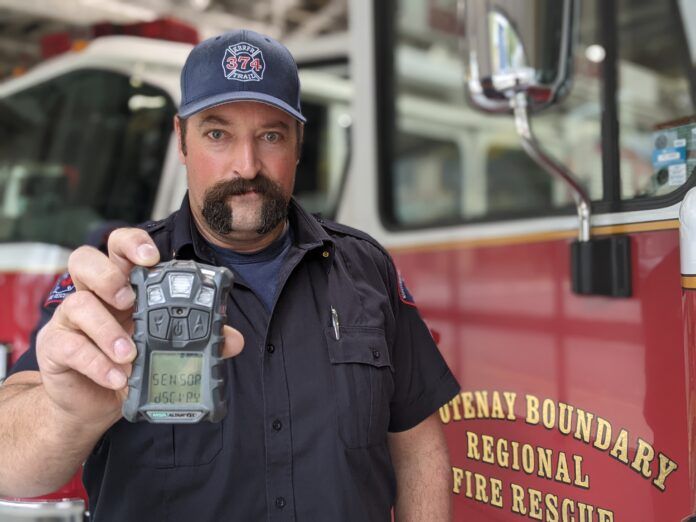Local residents living in the areas served by Kootenay Boundary Regional Fire Rescue can pick up a free replacement carbon monoxide detector at the Trail fire station on Rossland Avenue while supplies last.
The initiative, which coincides with Carbon Monoxide Awareness Week in B.C. extends to smoke alarms and provides the option for the public to drop off their broken or expired detectors at the fire department during the replacement process too.
Designed to educate the public on what carbon monoxide is, the symptoms and sources as well as how to avoid becoming ill, the awareness week provides firefighters with the opportunity to share their top tips to keep safe.
So far this year, regional fire and rescue has responded to a dozen calls related to carbon monoxide alarms. As the mercury drops and winter approaches, local firefighters want to keep the public safe and prevent those statistics from rising needlessly.
“The effects of carbon monoxide poisoning can be devastating but they’re totally preventable,” says deputy chief Glen Gallamore.
His No. 1 tip is to install a carbon monoxide alarm that signals an alert when the gas is present and if you already have one, to make sure it works. The recommendation is to have at least one carbon monoxide detector for every floor in the home and to regularly test them. If you have fuel-burning appliances, to also have them inspected by a licensed contractor every year.
“If your alarm is going off and you are unsure why, get to a safe location and call the fire department. If in doubt, call us. We have gas detectors on all our fire engines, and we’d be happy to come and check it out for you. Just please, never ignore the alarm, it is going off for a reason,” adds Gallamore.
Carbon monoxide is a toxic gas that is odorless, tasteless, and invisible and can be deadly following exposure. Symptoms of CO poisoning can be similar to the flu including headaches, nausea, and dizziness.
“As part of your annual winterizing process, make sure heating appliances are inspected and cleaned, furnaces are serviced, the filters are clean, and that all vents are clear and not blocked by any obstructions,” Gallamore says.
Don’t leave electric space heaters on unattended and never use portable propane and gas heaters inside the home. Check CO alarms and smoke detectors as part of a monthly routine and remember that they don’t last forever. They should be replaced every 10 years, and the batteries every year, or according to the manufacturers’ recommendations.


